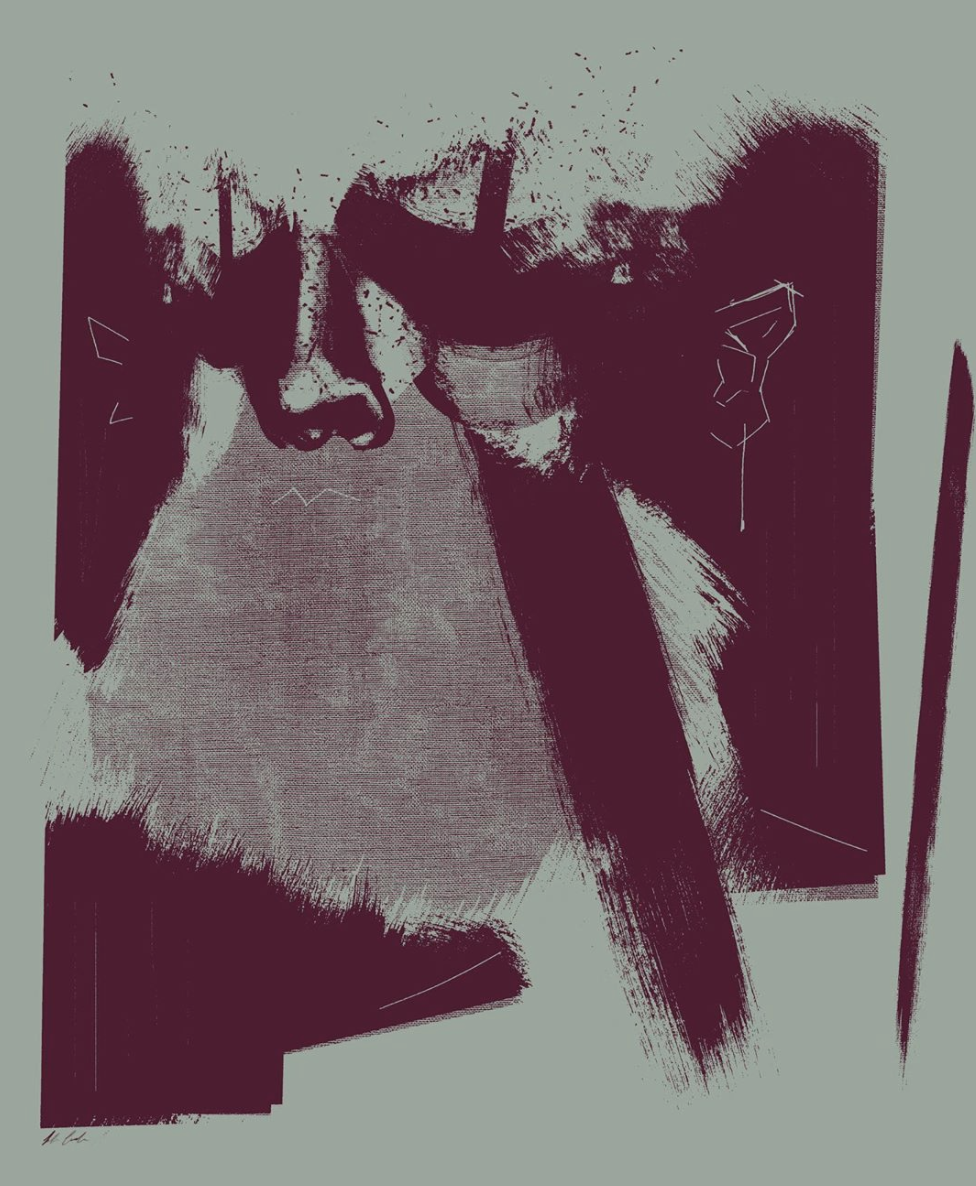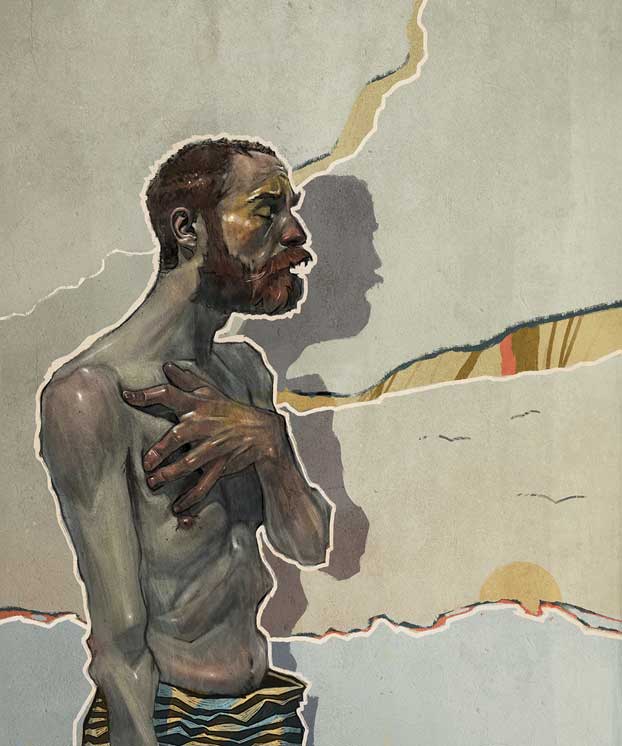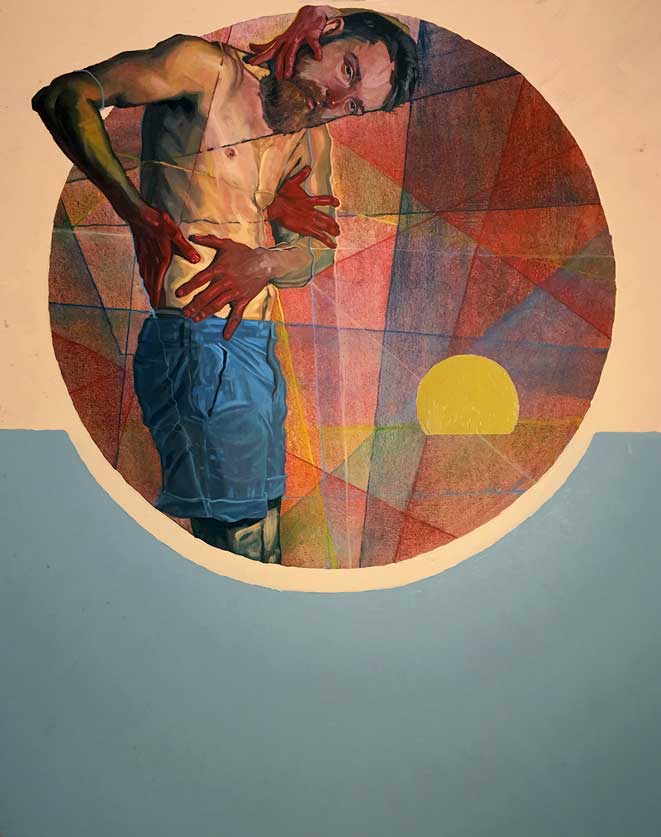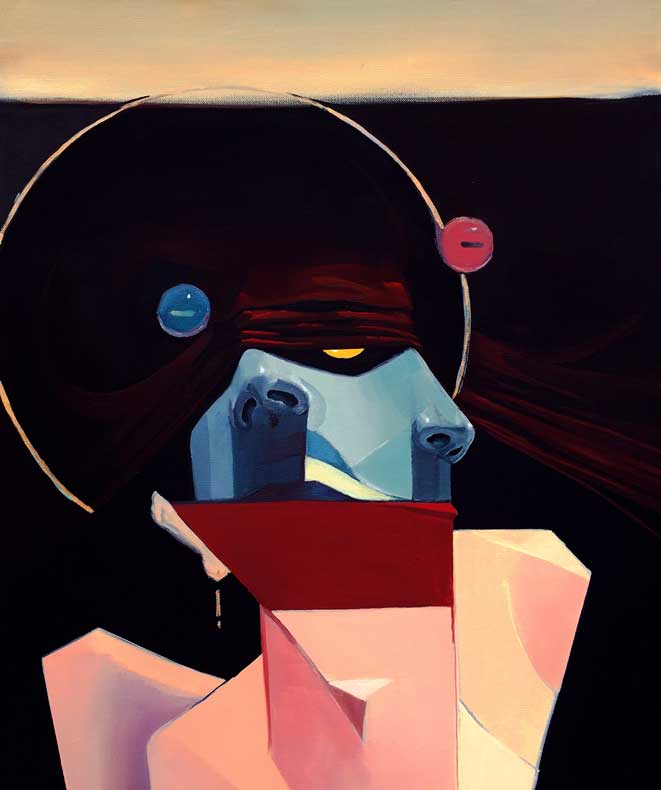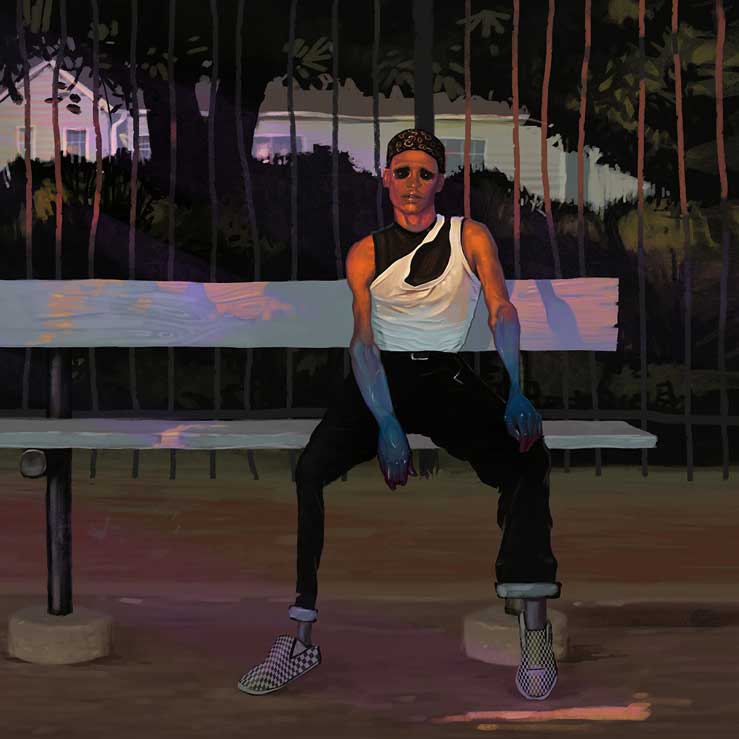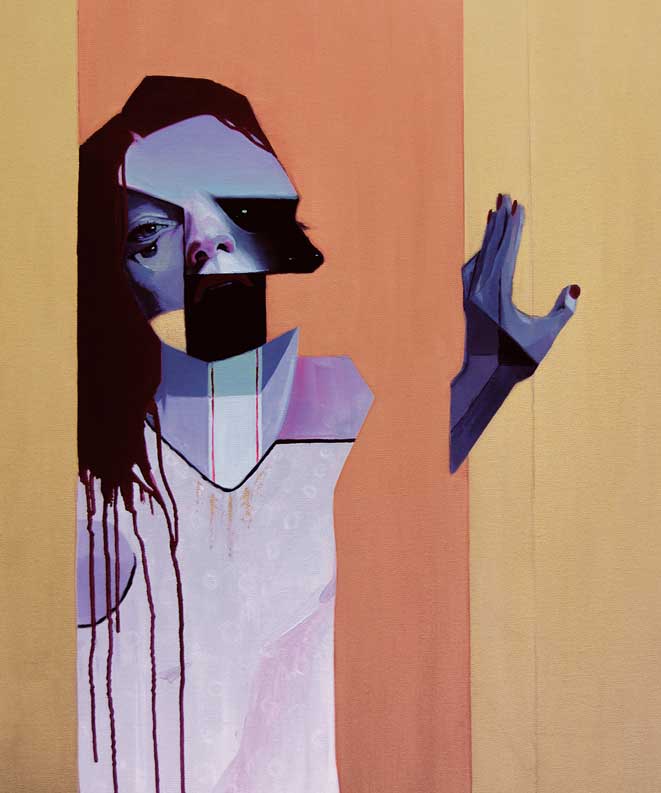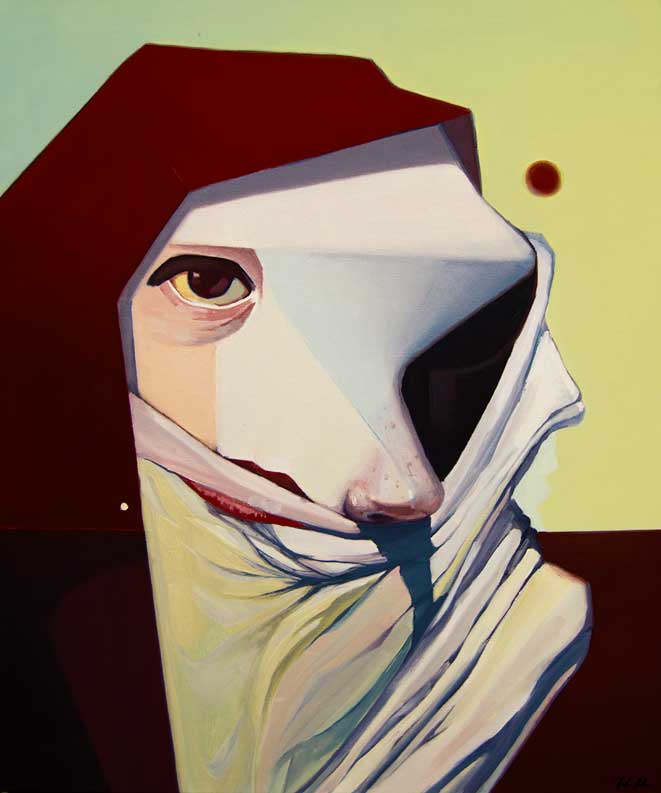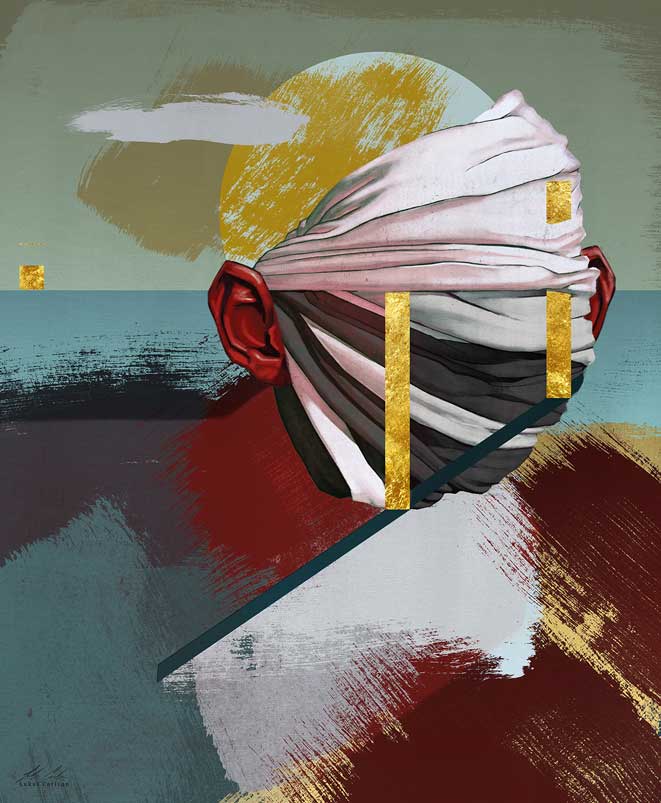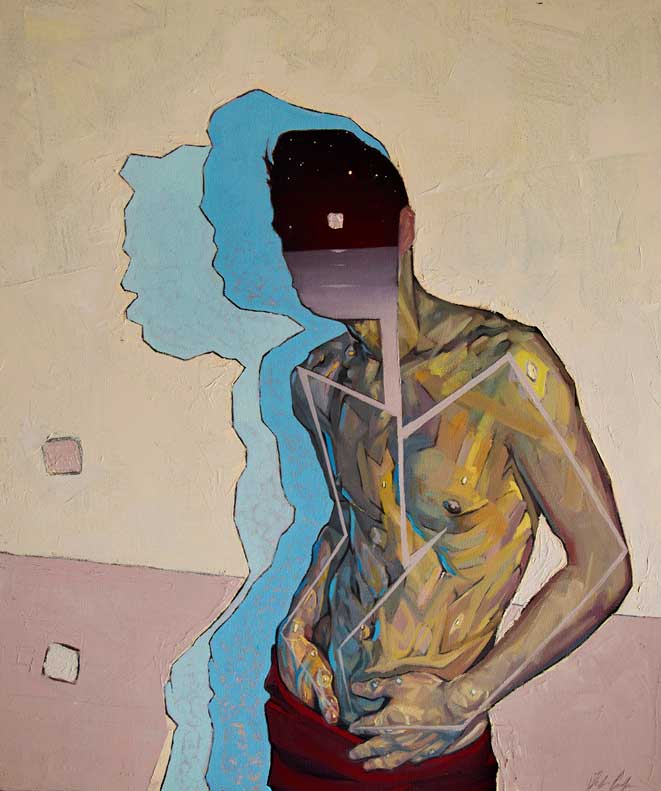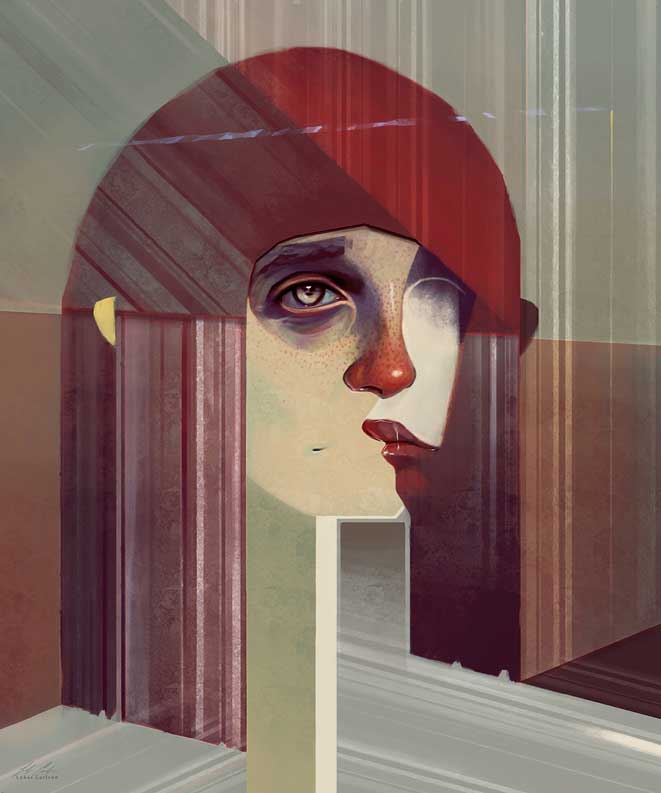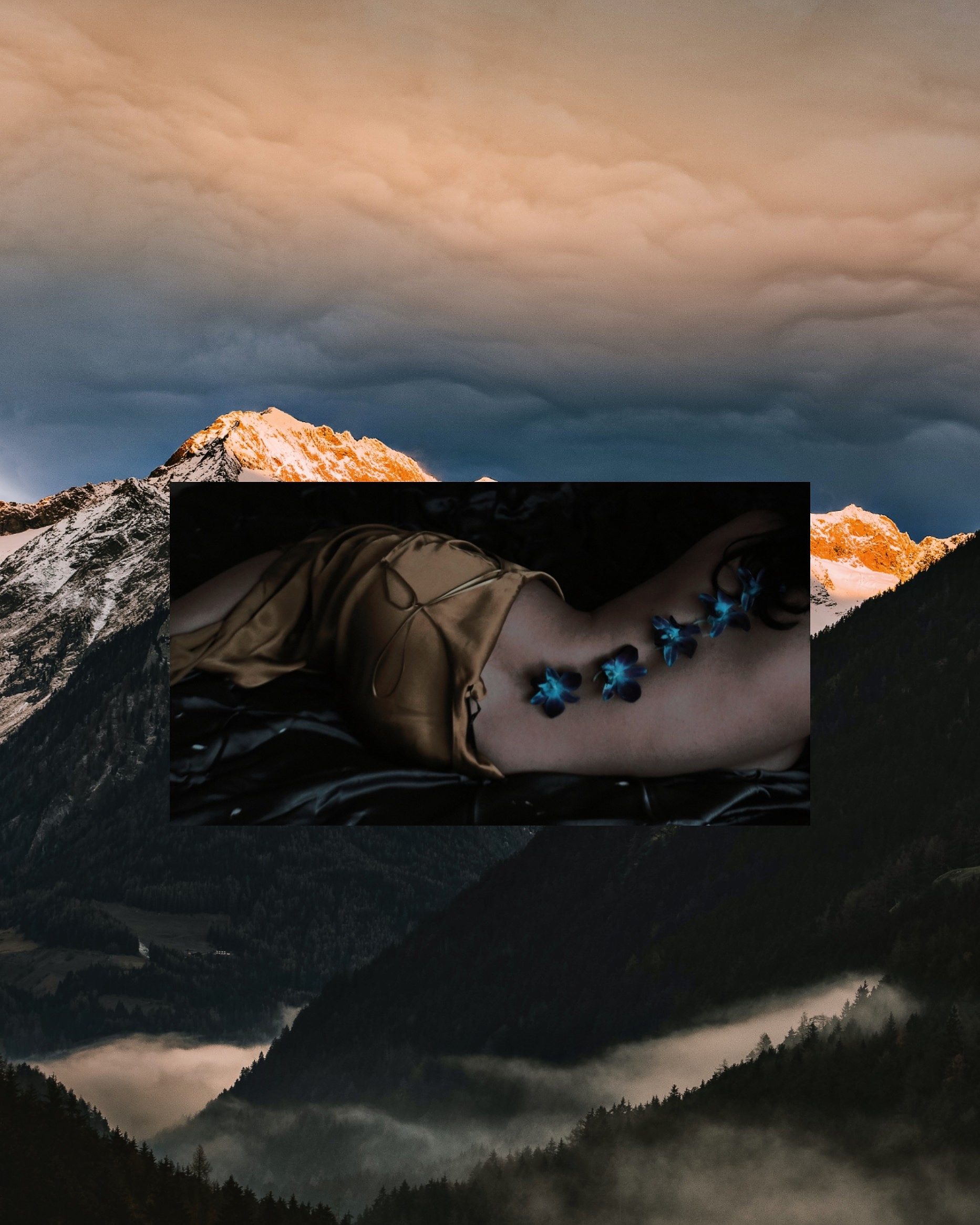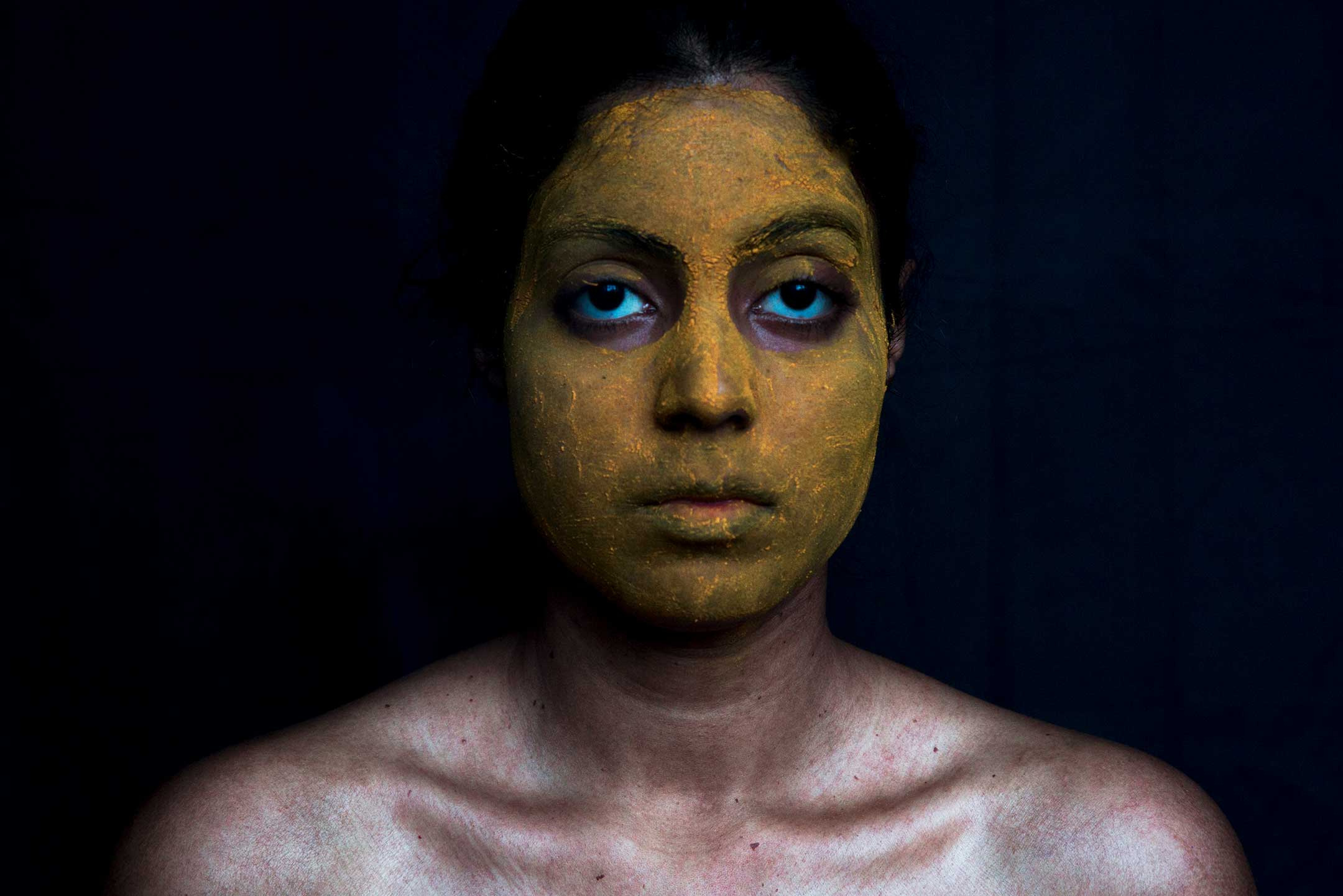Lukas Carlson graduated from the University of Wisconsin-Eau Claire in 2017 with a BFA in Illustration. Primarily a painter, his work explores the human figure while studying behavior and emotion. Lukas Carlson is currently pursuing his MFA degree at Minneapolis College of Art and Design.
“My intention is to connect on a deeply personal level by exposing what I call, disowned emotions. Certain emotions, like sadness and grief, are shared by all of humanity but are quite often denied room to breathe in our culture. They are regularly rejected.” says Lukas.
Lukas creates paintings that feel familiar, using patterns and features that resemble the human form, such as eyes, nose, mouth, or other points of convergence. His paintings are pieced and puzzled compilations of these features, mirroring that which is intimate. Lukas believes that body is a home, and like an architect, he redesigns the human form to give a new appearance to our quietest feelings and to what houses the soul. The body has patterns and parts that we all share. Pushing, pulling, and repeating these patterns allow him to create unique figures that are parallel to the human form, but are ultimately unrecognizable.
When manipulating the anatomy, he is often inspired by Nicolas Uribe. “What I find most attractive in his work is the over and under exaggerated elements of his figures. He is not afraid to force the bodies into the position that he sees fit in order to strengthen his concepts and compositions.” Lukas also studies Denis Sarazhin’s work, not only in his technique but how he uses the figure to drive symbolism. Uribe and Sarazhin motivate Lukas in that they both philosophize that, in a time where it seems as though figurative work has nothing left to offer, there is still more to say. Their work is not attempting visual accuracy of form, instead, a development of the human form that cannot readily be seen. Although his paintings physically refer to parts of those around me, it is his own emotional experiences that inspire their mood and spirit.
“My work molds figures into masks that hold sadness, a hidden sorrow, that I am most invested in exploring. There is soreness that exists within human life, and when we peel back the whitewash covering it, we come face-to-face with the truth. Although we try so hard to disown our pain by masking it with faux happiness to fit in, in doing so, we are indeed distancing ourselves from the rest of humanity. I want to challenge my audience to acknowledge their otherwise disowned emotions and give themselves permission to feel them. It is my goal to cultivate emotional release through my work, unearthing the stones that hold us down and yet bind us together. In our sadness, there is an inherent worth I am compelled to lend beauty to.”
All artworks by Lukas Carlson.
Curated by Shrey Sethi.


